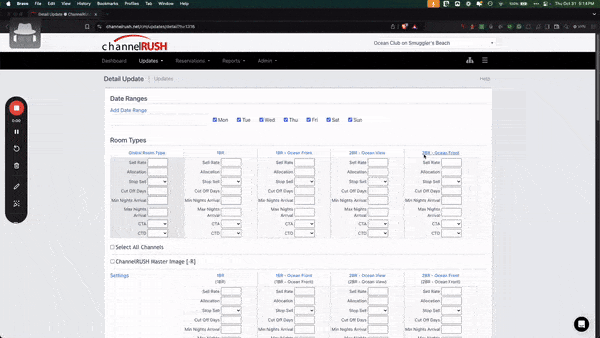Table of Contents
How To Audit Your Booking Engine (Or a New One)
Intro 👋
Today we’ll dive into an overview of how to audit your own booking engine regarding the essential features and qualities to evaluate.
Who Is This Article For?
-
- Hotels currently using the free booking engine provided by their PMS
- Revenue and marketing managers with low volume of direct bookings from their booking engine
- Hotel owners or managers considering a new booking engine
Items to Check When Auditing Your Booking Engine
⏩ 1. Is your booking engine website performance fast or slow? Test it right now.
Start here to get your site performance measured:
Just enter your booking engine’s URL on the link above and hit ‘analyze’ – and presto, you’ll get a summary of your booking engine’s technical optimization.
While the four categories – Performance, Accessibility, Best Practices, and SEO – are all important – the main one to focus on is Performance.
✅ Here’s a report for one of our ChannelRUSH booking engine sites:
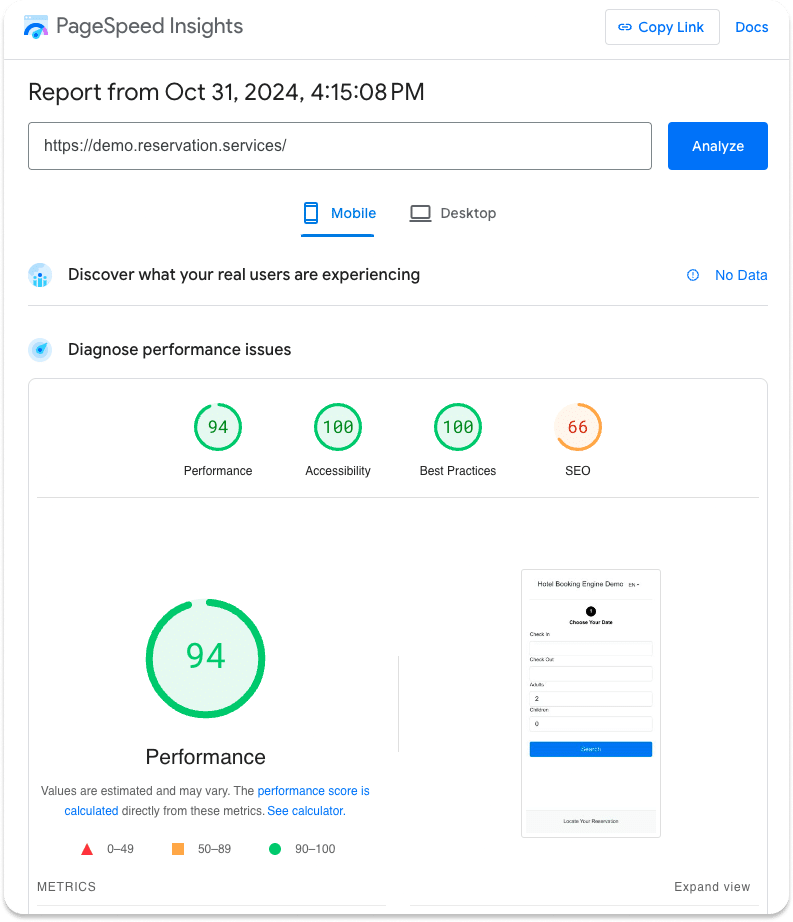
👆Just a note: our SEO score is low since we have the booking pages blocked from search engine indexing as not to compete with the rest of the site. 🙂
❌ Here’s a BE from a CloudBed’s with a little work to do:
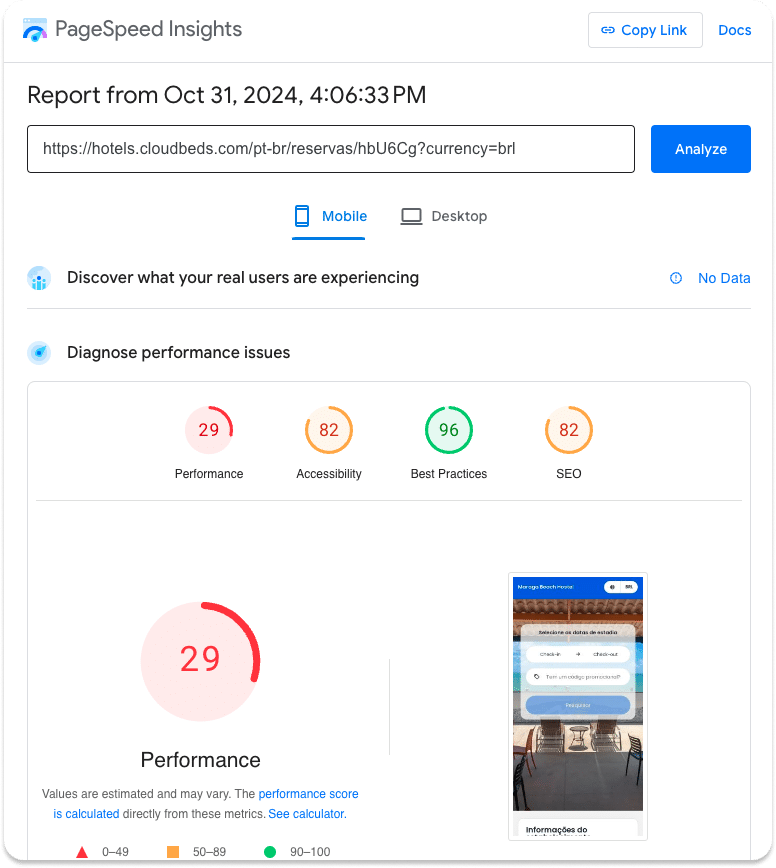
Page load time and performance are critical on mobile, as slow-loading pages lead to higher abandonment rates, particularly among on-the-go users who expect quick, seamless experiences.
Research shows that even a one-second delay can reduce conversions by up to 20%, underscoring the importance of optimizing for speed to capture more direct bookings and improve user satisfaction on mobile.
™️ 2. Can you tailor the booking engine to your brand’s look and feel seamlessly?
When you click on ‘book’ or ‘search’ on your website, does it feel like the guest just got transported to a totally different website?
If so, this isn’t good – brand consistency is key for building guest trust. A quality booking engine allows for customized colors, fonts, and layouts that match your website’s overall design.
Ideally, the booking experience look and feel should match your website’s – the guest should notice no differences.
❌ HERE’S A POOR EXAMPLE: Biscayne Suites
Here is their home page – a relatively nice site…
HOME PAGE URL: https://biscaynesuites.com/
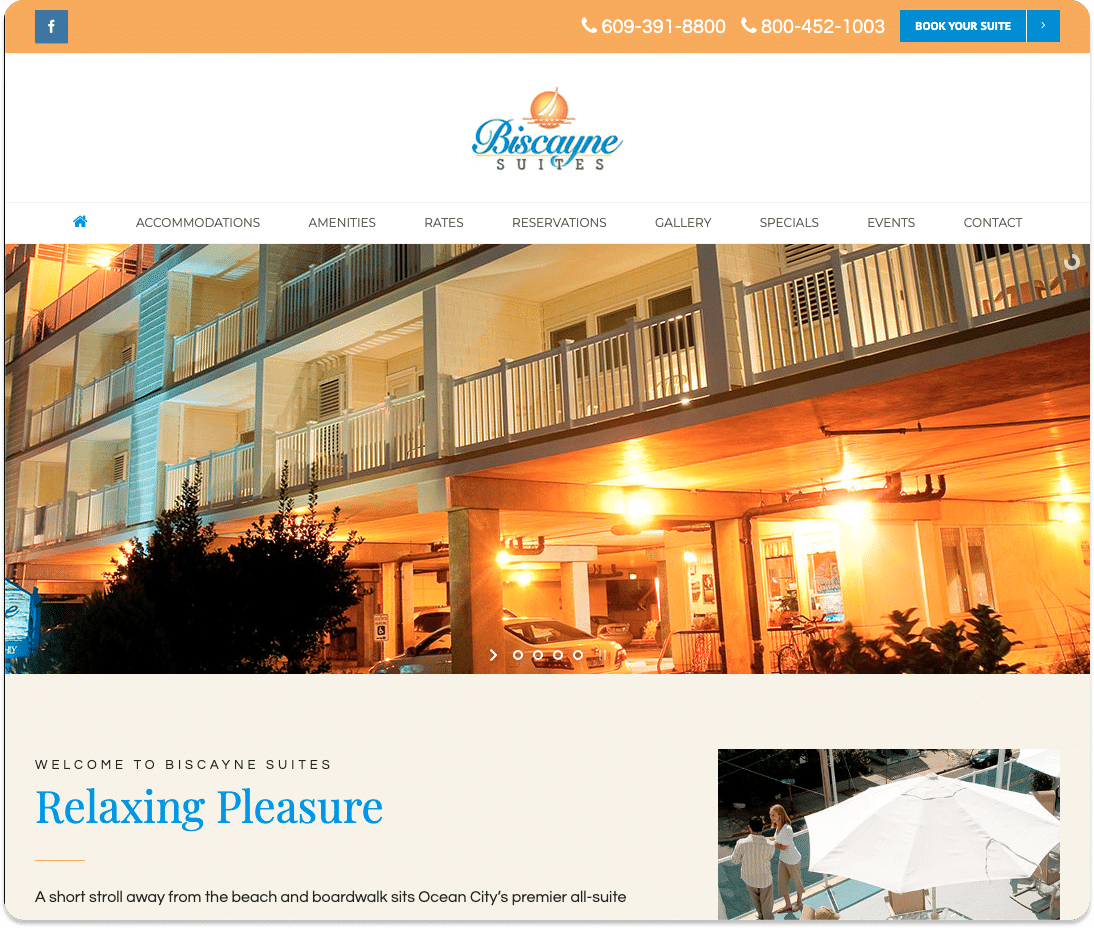
Then as soon as you click on ‘Book Your Suite’ you get to the first page of their booking process:
BOOKING PAGE URL: https://hotel953.openhotel.com/results.cfm
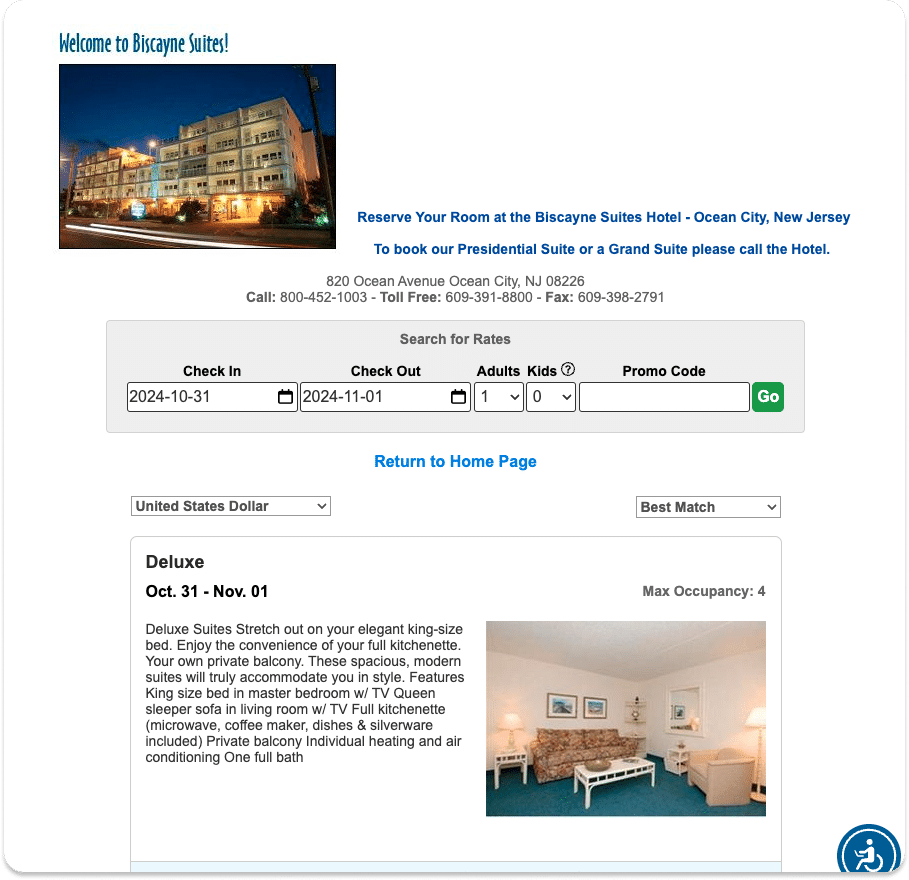
Where did we just go – are we still on the same site??
It looks like we got transported to a totally different site, using a different URL, with a poor layout and poor mobile optimization.
Not so much trust building and confidence, more of a ‘Am I sure I want to put my credit card into this website?’ type of feeling.
✅ A BETTER EXAMPLE:
Ocean Club on Smuggler’s Beach (a ChannelRUSH Booking Engine customer 😉
HOME PAGE URL: https://www.royaldunes.com/
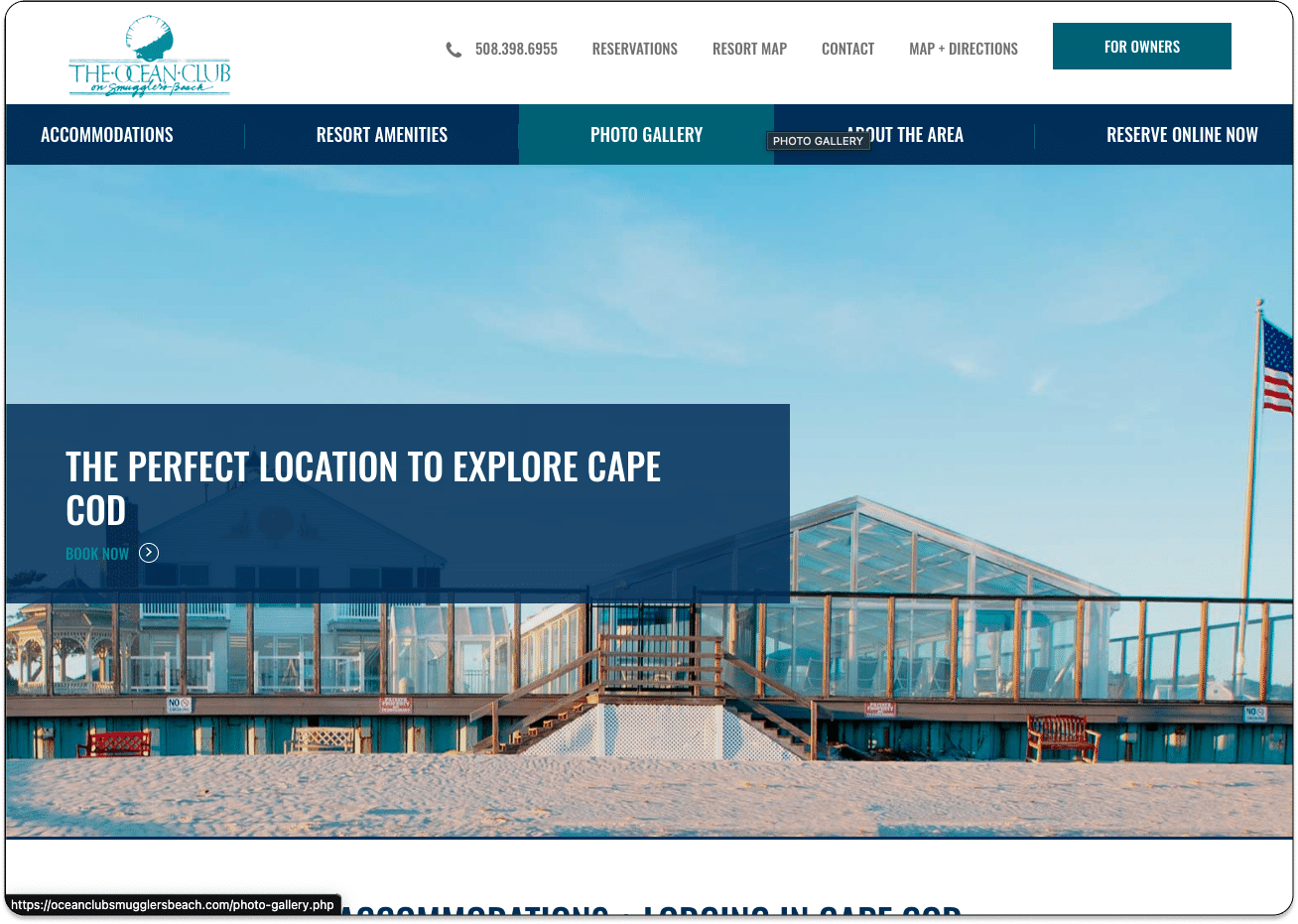
BOOKING PAGE URL: https://booking.royaldunes.com
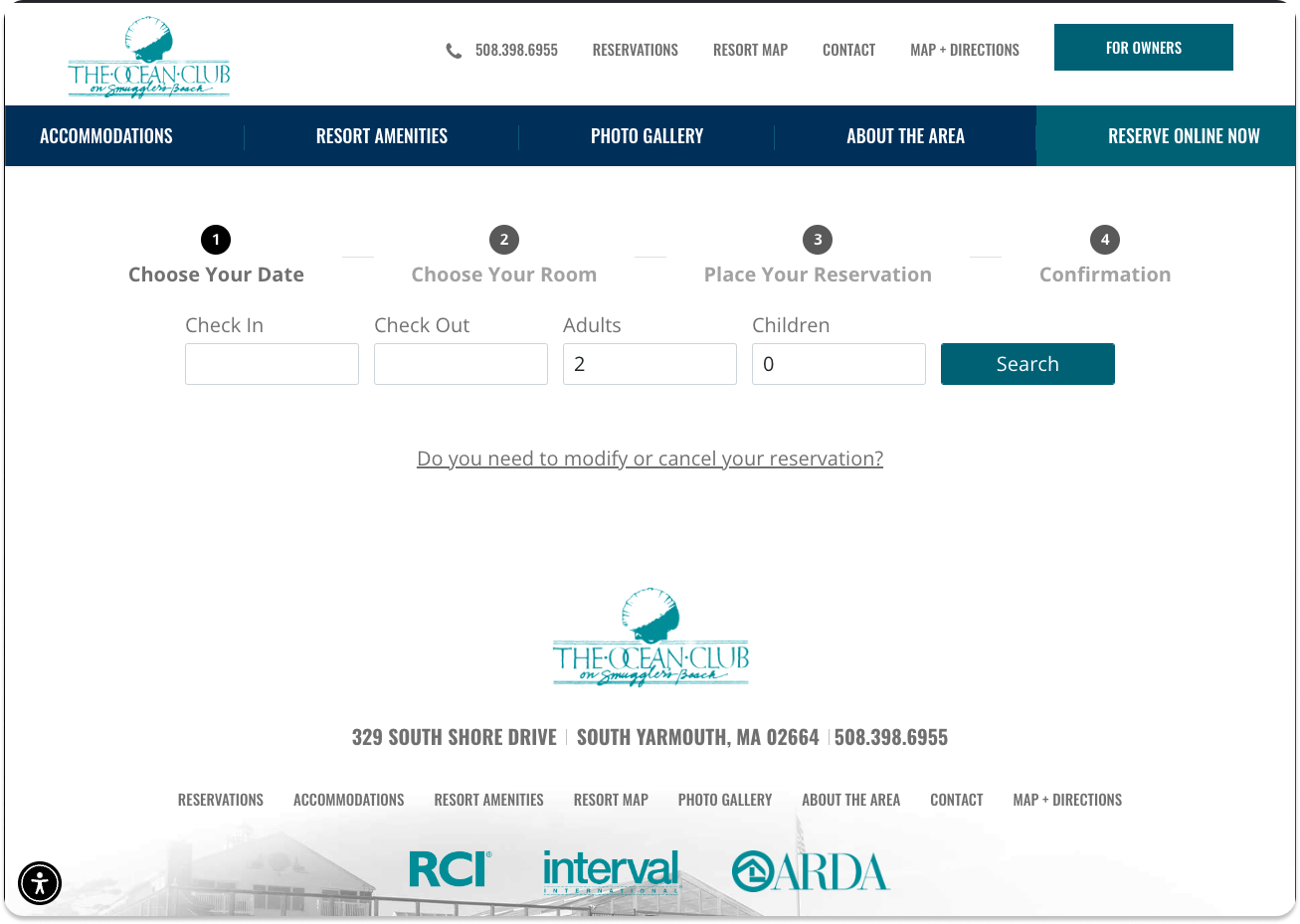
So nice and consistent – the site’s look and feel is identical, and I don’t even notice the transition to the booking engine – it looks like it is exactly part of the site, as it should be.
😄 3. Is the booking process smooth, intuitive, and guest-friendly?
A complicated, lengthy, or unattractive booking flow can deter potential guests and result in high abandonment rates.
Features like autofill, progress indicators, and guest accounts help streamline the process and reduce friction.

Aim for a clean design with clear calls-to-action and, most importantly, as few steps as possible from search to booking confirmation.
Optimized Booking Journey – 4 Clicks
→ Start with a well organized home page, with the ‘call to action’, or booking, easy to find.
→ Search for the dates and criteria of the stay.
→ Room review and selection.
→ Booking details and payment page
… Confirmed Reservation
With this type of focus, one could be literally 4 clicks away from a confirmed reservation.
With the booking engine we designed here at ChannelRUSH, we took great care to make it mobile optimized, lightning fast, and with as few steps as possible from their first page to the completed booking.
🔧 4. Does it integrate with your channel manager and other essential tools in real-time?
Your booking engine should work seamlessly with the other systems you rely on. This integration streamlines operations, reduces manual tasks, and ensures data accuracy.
Real-time updates to room availability and pricing are crucial to avoid overbookings or miscommunication. The booking engine should provide instant updates across all platforms (website, OTAs, etc.), reflecting changes in room inventory and rates accurately and immediately.
Our ChannelRUSH Booking Engine works seamlessly with our channel manager and our Central Reservation System.
Here is what it looks like in ChannelRUSH – the booking engine lives right along all of your other channels, updated from your PMS as the same time Booking and Expedia are updated.
✅ 5. Other items to check for…
A couple more items that are important to check for:
Can it handle complex pricing models, promotions, and upselling opportunities?
Dynamic pricing adjusts room rates in real-time based on demand, maximizing revenue during peak periods while maintaining occupancy during off-peak times. Scheduled promotions help target key periods, improving both conversion rates and overall revenue.
Can your guests book in their preferred language and currency?
Attracting a global inbound audience, so it’s vital that you can cater to international guests by offering multiple language options and currency conversion features. This improves the user experience for non-native speakers and simplifies the booking process for foreign guests.
Is your booking engine loading fast and visually appealing on a mobile phone?
According to Booking.com, about 50% of their bookings are made on a mobile phone.
The booking engine should provide a seamless experience across all devices, especially mobile phones and tablets, including easy navigation and fast loading times. A non-optimized engine can lead to lost bookings.
If any of these sound familiar…
I use the free booking engine from our PMS, it works I guess, but it is a little basic and limited.
Almost all of our bookings come from Expedia and Booking.com – we don’t get many direct bookings.
This guide was interesting – our existing booking engine doesn’t live up to many of these criteria!
… then it might be time to upgrade your booking engine.
For more info on the ChannelRUSH Booking Engine, check us out our product page or schedule some time to talk:
Hotel Booking Engine Software | Hotel Booking System – ChannelRUSH


